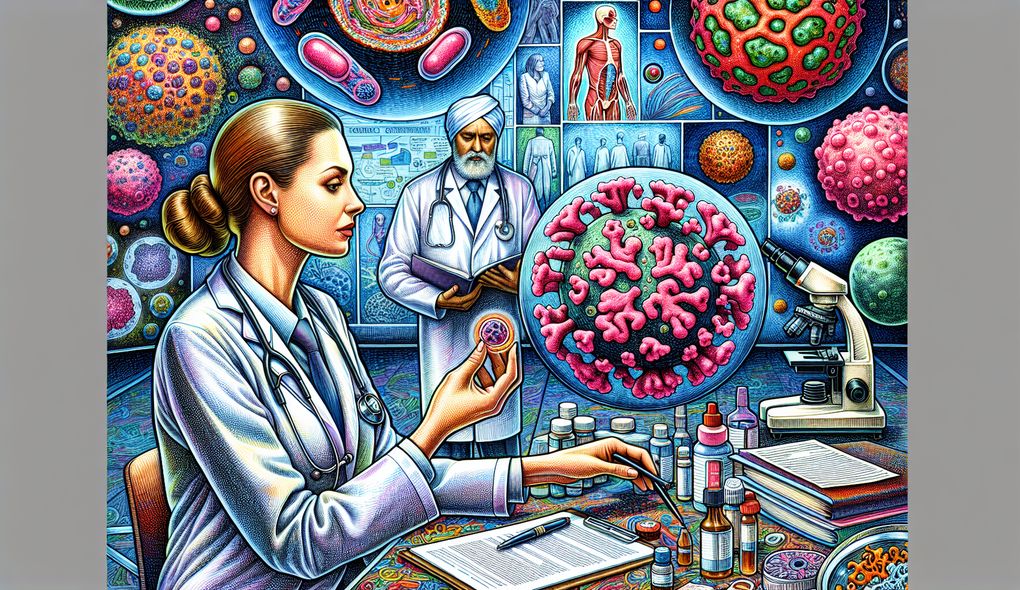What steps do you take to ensure accuracy and precision in interpreting clinical data?
SENIOR LEVEL

Sample answer to the question:
To ensure accuracy and precision in interpreting clinical data, I follow a systematic approach. Firstly, I carefully review the data to ensure its completeness and integrity. Then, I compare the data with the patient's medical history and relevant guidelines. I also use oncology information systems and electronic health records to organize and analyze the data. Additionally, I collaborate with other professionals to verify the accuracy of my interpretation and discuss any discrepancies. Finally, I document my findings and communicate them clearly to the medical team. This process helps me maintain accuracy and precision in interpreting clinical data.
Here is a more solid answer:
Ensuring accuracy and precision in interpreting clinical data requires a rigorous approach. Firstly, I meticulously review the data, examining its completeness and integrity. I cross-reference the data with the patient's medical history, relevant guidelines, and published research to ensure consistency and accuracy. To aid in the analysis, I utilize advanced oncology information systems and electronic health records that allow me to organize and visualize the data effectively. Additionally, I collaborate with a team of specialists, including radiologists, pathologists, and other oncologists, to verify the accuracy of my interpretation and discuss any discrepancies. This collaborative approach helps ensure a comprehensive and accurate analysis. Finally, I document my findings in a clear and concise manner, using specific terminology and references. Communication is crucial, and I ensure that my interpretations are easily understood by the medical team and other stakeholders involved in the patient's care.
Why is this a more solid answer?
The solid answer expands on the basic answer by providing more specific details and examples. It emphasizes the use of advanced oncology information systems and collaboration with a team of specialists, which aligns with the job description's requirement for strong analytical skills and interpersonal communication. However, it could further improve by including examples of how the candidate has used these strategies in their previous experience.
An example of a exceptional answer:
To ensure accuracy and precision in interpreting clinical data, I follow a meticulous process that encompasses several steps. Firstly, I conduct a thorough review of the data, examining its completeness, consistency, and integrity. This includes cross-referencing the data with the patient's medical history, relevant guidelines, and published research articles. To facilitate the analysis, I utilize advanced oncology information systems and electronic health records, which allow for efficient organization and visualization of the data. Furthermore, I actively collaborate with a multidisciplinary team, including radiologists, pathologists, and other oncologists, to verify the accuracy of my interpretation and discuss any discrepancies. This collaborative approach ensures a comprehensive analysis and minimizes the risk of misinterpretation. In documenting my findings, I utilize a standardized format, incorporating specific terminology and references to relevant guidelines and research. Clear and concise communication is essential, and I ensure that my interpretations are easily understandable by the medical team, patients, and other stakeholders. Additionally, I continuously stay updated with the latest advancements in oncology by attending conferences, participating in research projects, and engaging in continuous education. This commitment to ongoing learning enhances my ability to interpret clinical data accurately and stay at the forefront of oncology knowledge.
Why is this an exceptional answer?
The exceptional answer expands on the solid answer by providing even more specific details and examples. It highlights the candidate's commitment to ongoing learning and staying updated with the latest advancements in oncology, which aligns with the job description's requirement for continued education and professional development. The answer also demonstrates a comprehensive understanding of the importance of collaboration and communication in ensuring accuracy and precision in interpreting clinical data.
How to prepare for this question:
- Familiarize yourself with different oncology information systems and electronic health records to effectively utilize them in analyzing clinical data.
- Stay updated with the latest research and guidelines in oncology to ensure accurate interpretation of clinical data.
- Develop strong collaboration and communication skills by actively participating in multidisciplinary teams and seeking opportunities for teamwork.
- Practice documenting clinical findings in a clear and concise manner, incorporating specific terminology and references.
- Attend conferences, engage in research projects, and pursue continuous education to stay abreast of the latest advancements in oncology.
What are interviewers evaluating with this question?
- Analytical Skills
- Attention to Detail
- Collaboration
- Communication

